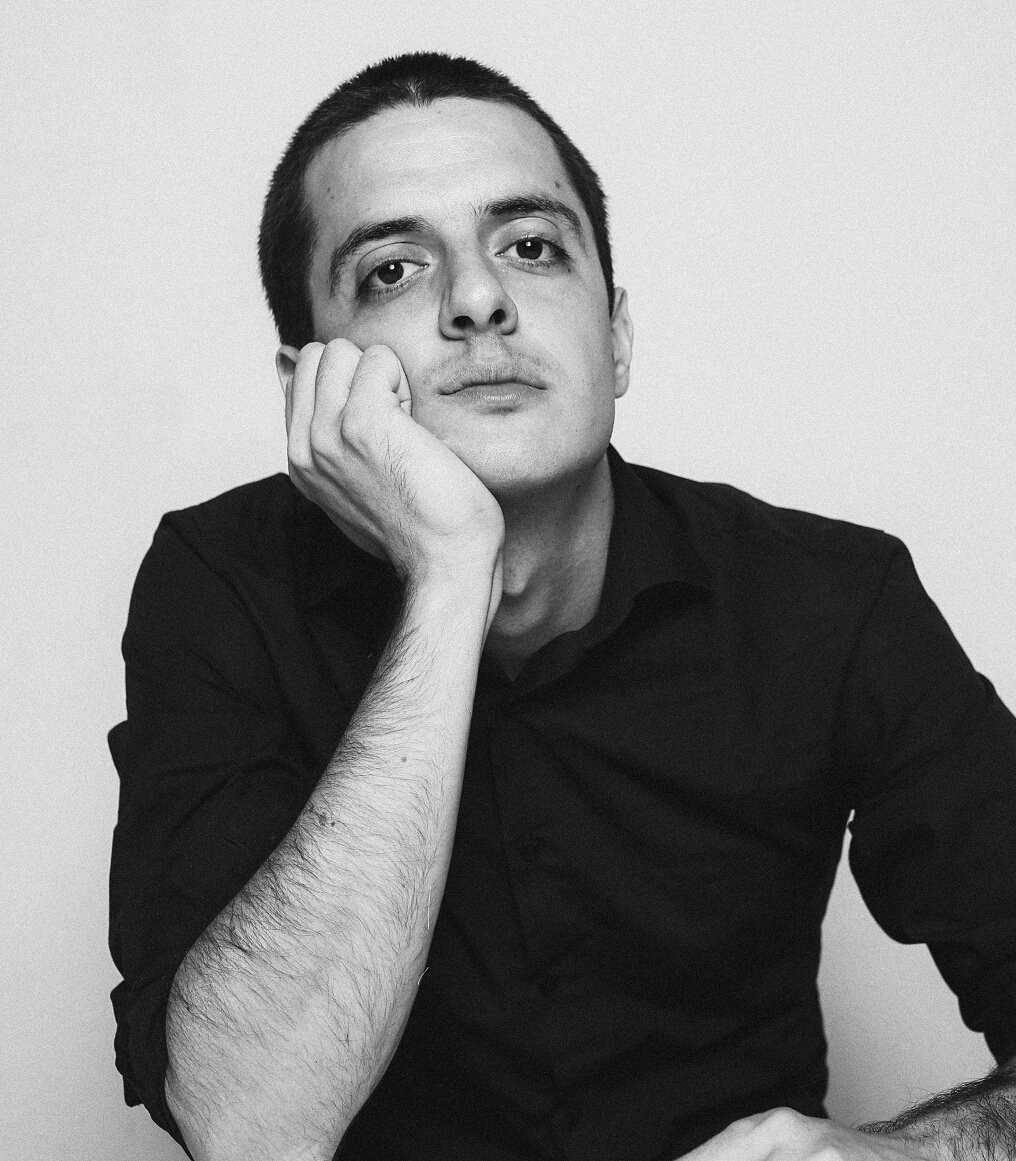One of the many guests of this year’s edition of the Belgrade International Documentary Film Festival was Giovanni Vimercati, a young film critic from Italy, who writes for numerous websites and publications (often under the pseudonym Celluloid Liberation Front) and runs his own blog, CLF Project. Giovanni was very kind to talk about the state of film criticism today, his own approach to writing critiques and many other topics regarding life of a film critic.
What is the role of the film critics today?
It depends. I can’t speak for the Balkans, but in Italy and in the English speaking world, the film criticism you come across in mainstream media is between film criticism and publicity. For example, one of the websites I write for is a very mainstream, commercial website. Even from the headlines you can see that they aim at generating online traffic. That’s, unfortunately, the reality of the market. It affects the criticism, but it also affects all forms of journalism. Ideally, I think the role of criticism should not be to tell audience what to watch and give stars. It should be a way to connect the film with the wider context. For me, it is a way to start a debate about the issues that the movie raises. There are some tendencies in film criticism that it should be focused only on the cinema. I don’t want to generalize, there are exceptions, of course. I think critics should mix disciplines – mix cinema with politics, architecture, philosophy, religion, anything.
Do you think critics have a real influence today?
The role of a film critic definitely has less of an influence over audiences than it used to have. I think that is mostly good. I believe that the audience should not blindly believe the critic, because at the end of the day, any form of criticism is subjective. I think the audiences should be encouraged to form their own opinion. And, you know, the fact that the classic film critics have less of an influence gives the general spectator a chance to have a more proactive role and give his own opinion. Of course, there is a difference between an opinion, that anyone can have, and an argument. A film critic should be able to build an argument.
For how long have you been working as a critic and what has changed since then?
Well, I’m very young. I published my first article in 2008. I don’t think I’ve ever hoped this could be my full-time job. When I started, the economic crisis has just started, so I had no illusions that I could make a living by doing this. Now, the more I got to know the film industry, I’ve become a bit disillusioned, because, you know, just like any other industry, it is run by interests, egos. Like any other sector, it has both good and not so good people. I don’t know if the film criticism has changed, because when I started writing, most of it was already on the Internet. The Internet has, in a way, broadened the choice. For example, I write in English, despite being Italian. English, for better or worse, has became the universal, neutral language. That’s good, because, for example, I can read your articles in English. I can read people of other nationalities. The problem is that the most of the websites and magazines are run by the people from Anglo-Saxon world. I hope the film criticism will become more culturally diverse. English speaking film criticism is still very much Anglo-Saxon, despite the reasonable number of people that are not Anglo-Saxon, but write in English. What I’m hoping for is that the fact that we all write in English will not necessarily imply that we’ll all end up thinking and writing the same way, but on the contrary, that we’ll get more points of view and cultural perspectives on the same films.
What is the greatest challenge for a film critic and what are the flaws of this job?
The biggest challenge for a critic is to make a living. That’s nearly impossible, unfortunately, at least in Italy. Film critics are getting fired from the newspaper. When a crisis hit, the cultural part is the first to be either cut either, even worse, turned into gossiping. But the fact that you can not make a living by only doing film criticism doesn’t mean that you have to abandon it. For example, I work in distribution, there are people who are programmers, working for the festivals. You can do other things that can positively influence your film criticism. As for the flaws, I think they are visible when the critics only focus on the cinema and act extremely geeky about it. That’s good, I act like that too, but it is very important to engage in other things as well. An example – when we get to watch films about other nations, about Ukraine, about Iran, we only get one point of view, which is mainly the Western point of view on these countries, often made by filmmakers who don’t speak the language of the country where they go. I think we should be very critical and skeptical about that, and the only way to be critical about that is to learn, inform yourself and not trust blindly to what you see in the film, because, you know – that’s one point of view. You always need some background information in order to produce valuable critiques. Unfortunately, people in the West believe the mainstream voice. For example, recent documentaries about Ukraine, that in the West have been more or less critically embraced without any second thoughts, I personally think that are very one-sided. It’s a duty of a film critic to investigate that.
How many times do you see a movie before writing a critique?
Generally, I’d like to watch it twice, but honestly, I rarely do, because I usually don’t have the time. Sometimes, it happens that, especially when I like a movie, I watch it twice. I don’t think it’s unprofessional to watch it only once, because the audience does the same. Also, it happens to me that I watch the movie once and I like it, and then I watch it the second time and end up not liking it so much. So, ideally, it would be great to watch the movie twice, but seeing it once is also okay.
What aspects of film are dominant in your criticism?
I guess people would consider my writing political. It sounds a bit banal, but I think every writing is political – mine is explicitly so. I think cinema originates from the world, so when I write about a film, I always want to go back to the context where that film came from. The editors, especially English speaking editors, often tell me “Stick to the film”, because I tend to start talking about the issues that the film raises or is connected to. The kind of film criticism I’m interested in is the one that explores what the film says about the wider context. Then again, I am very ignorant in how the film is technically made. I’ve never held a camera, I wouldn’t know how to shoot a simple scene. I don’t think that’s necessarily a handicap, because the average film spectator doesn’t know how to make a film.
Do you think a critic should openly “pick a side”, a political option, or should he or she just stick to analyzing the political context of the given movie?
I think that objectivity is a mendacious and dangerous concept, there is no such a thing as neutrality. Whenever we write, film, sculpt, compose music, draw or whatever we’re are expressing our subjectivity. So every critic who writes is already “picking a side”. Even when reviewing films that are not necessarily “political”.
Tell us more about your CLF project. What was the initial idea?
The idea originates from the 90s , when there were some so-called multiple names, like Luther Blissett – that was the most famous one. Those were a kind of cultural projects, where anyone could use that name to make media pranks, cultural criticism, and all in anonymous way. The idea behind that, and it is something I believe in, is that identity, any kind of identity, can not be a definable concept. I don’t believe in the concept of individual authorship. I think that, when you write or make something, there are always many influences on your work. When I write an article, what I write is not only my work. It’s the books I’ve read, the music I’ve listened to, the people I’ve met and talked to. I think that individual authorship is a manufactured concept. The idea behind those multiple names was precisely to recognize there’s no such thing as an individual author of something. So, when I started writing film criticism, my idea was to use a collective name that anyone could use, but the problem is that I am the only one who used this name, no one has ever picked it up. This problem may originate from the fact that the film world is very much based on the individual authorship, you know – the director gets all the credit. But on the contrary, film is an example of an art which is always collective. CLF was also a good marketing tool, as people are more likely to remember a name like Celluloid Liberation Front than to remember just another proper name.
Do you have any reading recommendations for young and emerging critics?
My favorite book on film criticism is “Film as a Subversive Art” by Amos Vogel. Amos Vogel was an Austrian Jew who escaped from the Nazis and went to America. He established the first film society in America, where he showed a lot of European films to the American audience for the first time. This was a private membership film society, which meant he could bypass the censorship and show anything, from European arthouse to Nazi propaganda films, pornography … His book was published in 1973 and it is kind of a collection of all the films he showed in this film society. I believe that’s the best thing ever written on film by far. There are many good websites as well, for example Mubi and Festivalists. Also, Cinema Scope is a very nice magazine, as well as Cineast, an old American magazine which I really like. So, that would be the things I really love to read.

